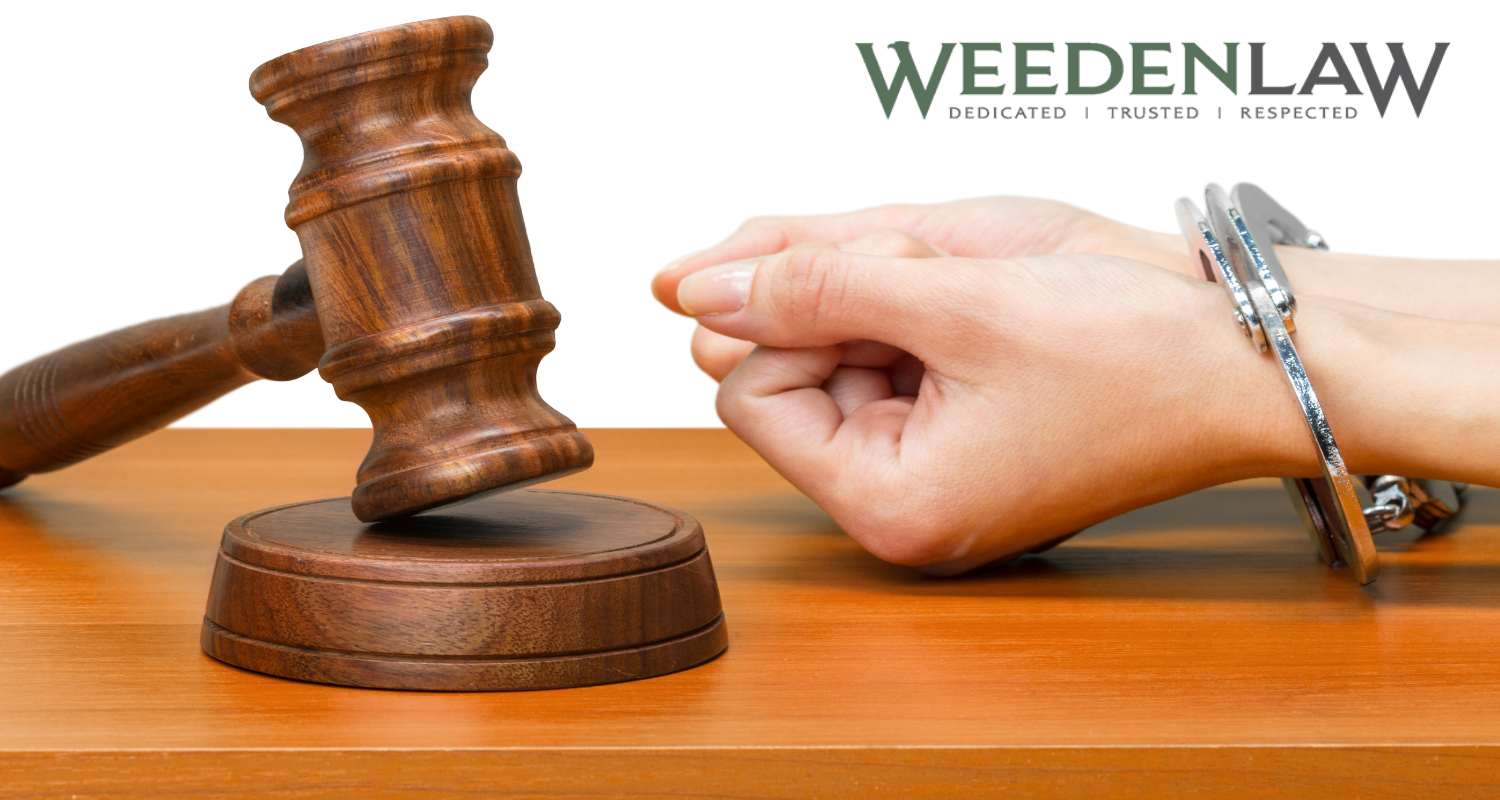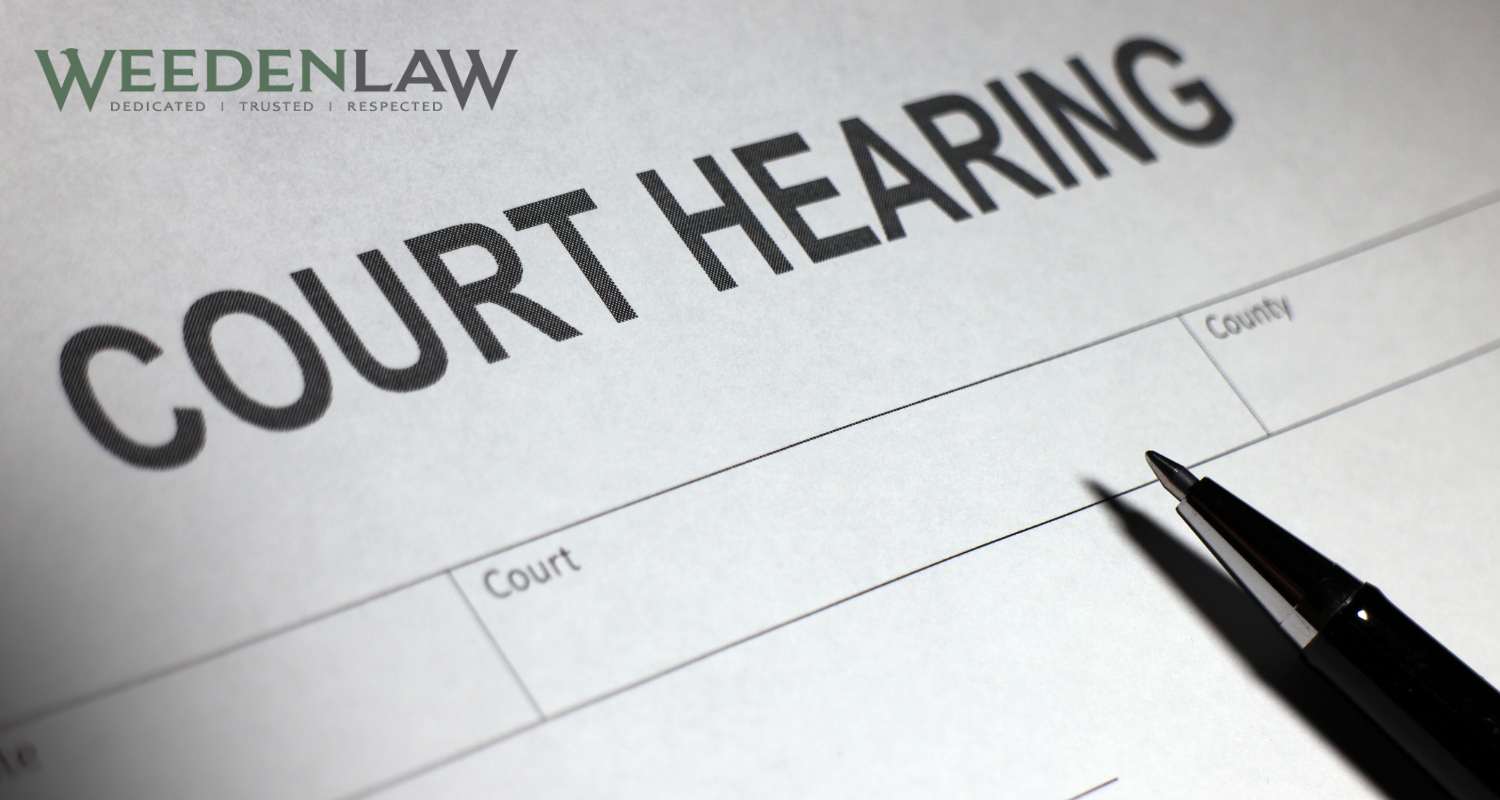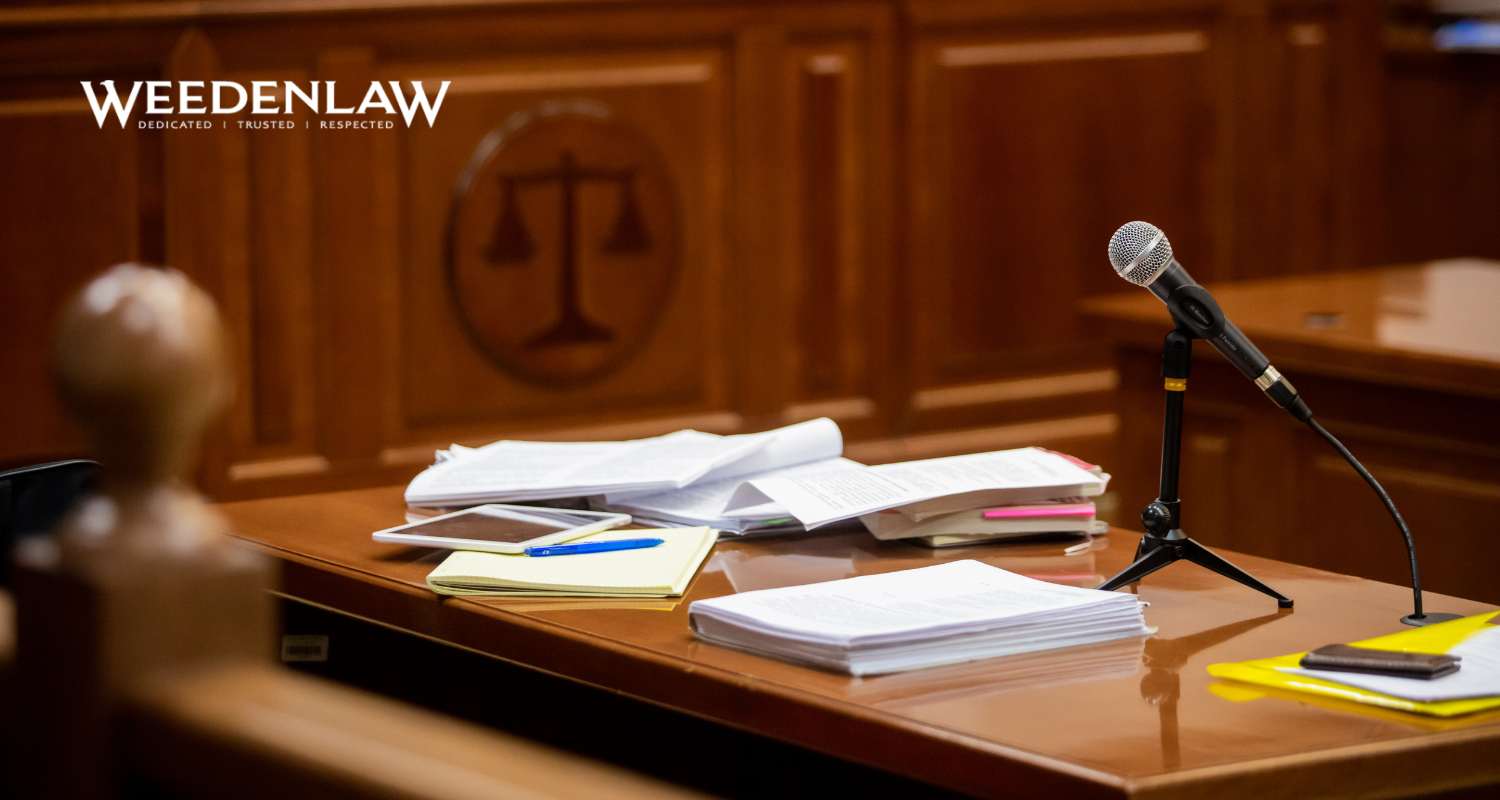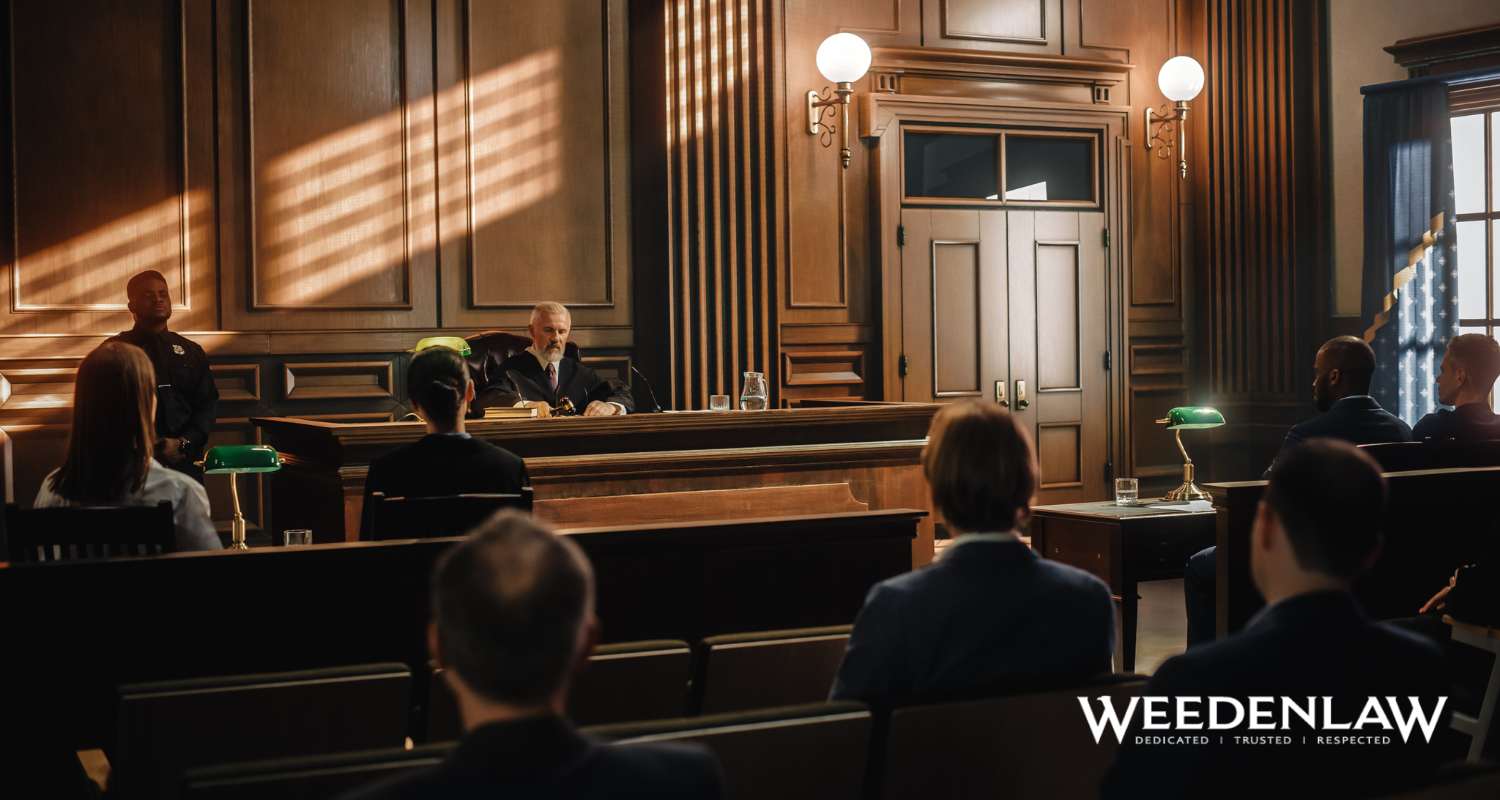We know that Colorado courtrooms have strict rules and procedures, but what is contempt of court, and why does it carry such serious consequences?
Contempt of court occurs when someone disrespects the court’s authority or disobeys court orders. This can include failure to attend a court hearing, publicly commenting on a court case, or behaving in a way that disrupts courtroom proceedings. Colorado courts take these offenses very seriously and may impose penalties like fines or jail time for those found in contempt.
Contempt of court carries these punishments because it disrupts the legal process and shows a lack of respect for the court’s authority. When someone ignores or disobeys the court’s order, it can delay justice and prevent a fair trial.
If you’re dealing with a contempt charge, it’s important to have a knowledgeable attorney on your side. Reach out to Denver criminal defense attorney Jeff Weeden to protect your rights and help you with the challenges of your case.
Call Weeden Law at (720) 307-4330 or contact us online to schedule a free consultation with a trusted Denver contempt of court attorney today.

Colorado Contempt of Court Statute
Colorado Rule of Civil Procedure 107 outlines the rules and procedures related to contempt of court in the state of Colorado. This rule governs how courts handle situations where an individual or party disobeys or shows disrespect to the court’s authority.
Colo. R. Civ. P. 107
C.R.C.P. 107 covers several key areas:
- Types of Contempt: The rule distinguishes between different types of contempt, including direct contempt (actions that happen in the presence of the court) and indirect contempt (actions that occur outside the court but still violate a court order).
- Procedures for Contempt: The statute sets out the procedures that courts must follow to address contempt. This includes providing notice to the accused party, holding a hearing, and allowing the accused to present a defense.
- Penalties: Rule 107 also describes the penalties that can be imposed for contempt, which may include fines, imprisonment, or other sanctions. The severity of the penalty depends on the nature of the contempt and its impact on the court case.
- Right to Appeal: Individuals found in contempt under this rule have the right to appeal the contempt order.

Types of Contempt of Court
When a court decides that someone has violated its authority, it must make a judgment on the type of contempt involved. Understanding the different types of court contempt is important because the court’s judgment will determine the specific penalties and procedures that follow.
Civil Contempt vs. Criminal Contempt
The difference between civil contempt and criminal contempt comes down to the purpose and the type of disobedience involved.
In civil contempt cases, the goal is usually to get someone to follow a court order, such as paying child support, and the punishment ends once they comply. Criminal contempt cases, however, involve punishable actions that show disrespect to the court, like disrupting a trial. These can lead to fines or jail time to penalize the disobedience and maintain the court’s authority.
Direct Contempt vs. Indirect Contempt
Direct contempt occurs when someone disrespects or disobeys the court right in front of the judge, such as by interrupting a trial or refusing to answer the court’s questions when called as a witness. This type of contempt is immediately visible to the court and can be addressed on the spot.
Meanwhile, indirect contempt occurs outside of the court’s presence, such as when someone fails to follow a court order or disrupts legal proceedings in some way that the judge does not directly witness. This is also known as constructive contempt. Because indirect contempt isn’t immediately visible to the court, it requires a separate contempt proceeding to prove and address the disobedience.
Direct Contempt of Court Examples
An example of direct contempt of court would be a situation where a witness in a courtroom becomes openly hostile while testifying and refuses to answer the court’s questions despite being ordered to do so.
Another example could be a criminal defendant loudly arguing with the judge or any other party during a trial, disrupting the proceedings, and refusing to follow courtroom decorum. These actions are considered direct contempt because they occur in the presence of the court and directly challenge its authority.
Indirect Contempt of Court Examples
An example of indirect contempt of court might be a person who deliberately fails to pay child support after being ordered by the court. Since this act of disobedience happens outside of the courtroom and is not directly witnessed by the judge, it is considered indirect or constructive contempt. The court would need to take additional steps, such as holding a hearing, to address and enforce the original court order.
Remedial vs. Punitive Contempt
Other words you may hear associated with contempt of court are “remedial” and “punitive.” The difference between remedial and punitive contempt lies in their purpose.
Remedial contempt is meant to encourage someone to follow a court order, known as a lawful writ, by imposing consequences that can be lifted once they comply. For example, if someone isn’t following a court’s lawful writ to pay child support, they might be held in remedial contempt until they make the payments.
On the other hand, punitive contempt is meant to punish someone for disrespecting the court or breaking its rules, regardless of whether they eventually comply. This could involve a hefty fine or even incarceration to uphold the court’s authority.

Is Contempt of Court a Felony?
No, contempt of court is generally not classified as a felony under American law. Instead, it’s a separate legal issue where the court has jurisdiction to decide punishments based on the severity of the offense. Anyone in the courtroom, including lawyers, witnesses, jury members, court officers, plaintiffs, or defendants, can be held in contempt.
How Long Can You Go to Jail for Contempt of Court?
The amount of time you can go to jail for contempt of court depends on the situation. If it’s civil contempt, like not paying a fine, you could stay in jail until you do what the court asks. This means you could be in jail for a while, but you can get out once you comply.
For criminal contempt, which involves actions that disrespect the court, a judge might give you a fixed prison sentence, depending on how serious the offense is.
Colorado Contempt of Court Punishment
In Colorado, contempt of court punishments depend on whether the acts are classified as civil or criminal contempt.
As previously mentioned, civil contempt focuses on getting parties to comply with court orders, with punishments like fines or jail time that last until the defendant complies.
On the other hand, criminal contempt involves acts that disrupt the administration of justice or show disrespect to the court. Depending on the evidence and severity of the offense, criminal contempt is punishable by fixed prison sentences, fines, or both.
The court includes these measures to ensure that all parties respect its authority and the proper administration of justice.

Does Contempt of Court Go on Your Record?
Contempt of court can go on your record, but it depends on the type of contempt and the specific circumstances.
Generally, civil contempt is not considered a criminal offense, so it may not appear on your criminal record. However, if the case involves serious non-compliance or if the court imposes jail time, there could be a record of the contempt proceedings. On the other hand, criminal contempt is treated as a criminal offense, so it is more likely to appear on your criminal record.
If you’re concerned about how a contempt charge in Colorado might affect your record, it’s important to consult with a Denver criminal defense attorney who is experienced in both criminal and civil contempt of court cases. Attorney Jeff Weeden can provide guidance based on your situation and protect your legal rights throughout the process.
Do I Need a Colorado Court Contempt Lawyer?
If you’re facing a contempt of court charge in Colorado, it’s wise to seek legal help. Jeff Weeden, an experienced court contempt lawyer, can guide you through this process. He’ll help you understand the charge, explore defenses like misunderstanding or inability to comply, and negotiate with the court to potentially lessen any penalties.
If you’ve already been convicted, attorney Jeff Weeden can also assist with the appeals process and present evidence to argue for a review of the decision. Regardless, his support is vital for any criminal defendant looking to protect their rights and seek a favorable outcome.

Call a Denver Criminal Contempt of Court Defense Attorney at WeedenLaw Today
Dealing with a contempt of court charge can be overwhelming, but you don’t have to handle it alone. Denver criminal defense attorney Jeff Weeden has the experience and knowledge to help you with these serious legal matters.
If you’re dealing with a criminal contempt charge, Attorney Weeden and his legal team will work tirelessly to protect your rights and build a strong defense.
Contact Weeden Law to get the support and representation you need. Simply call (720) 307-4330 or contact us online to get in touch today.














